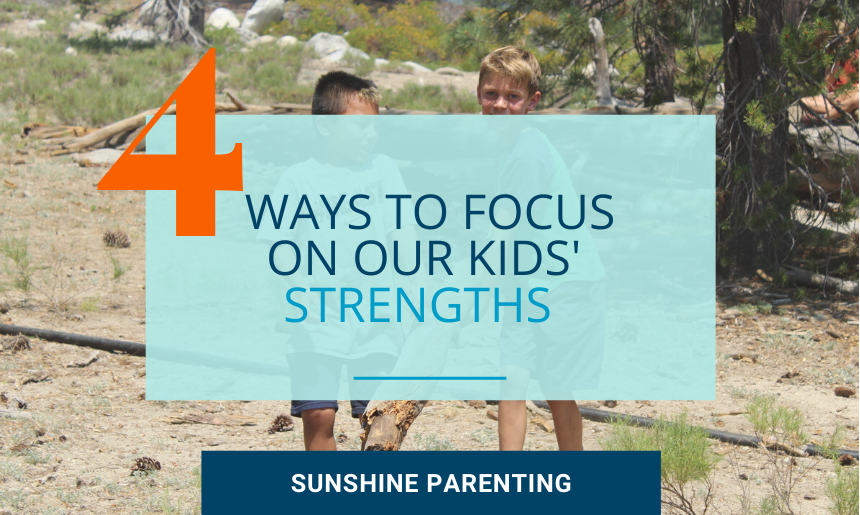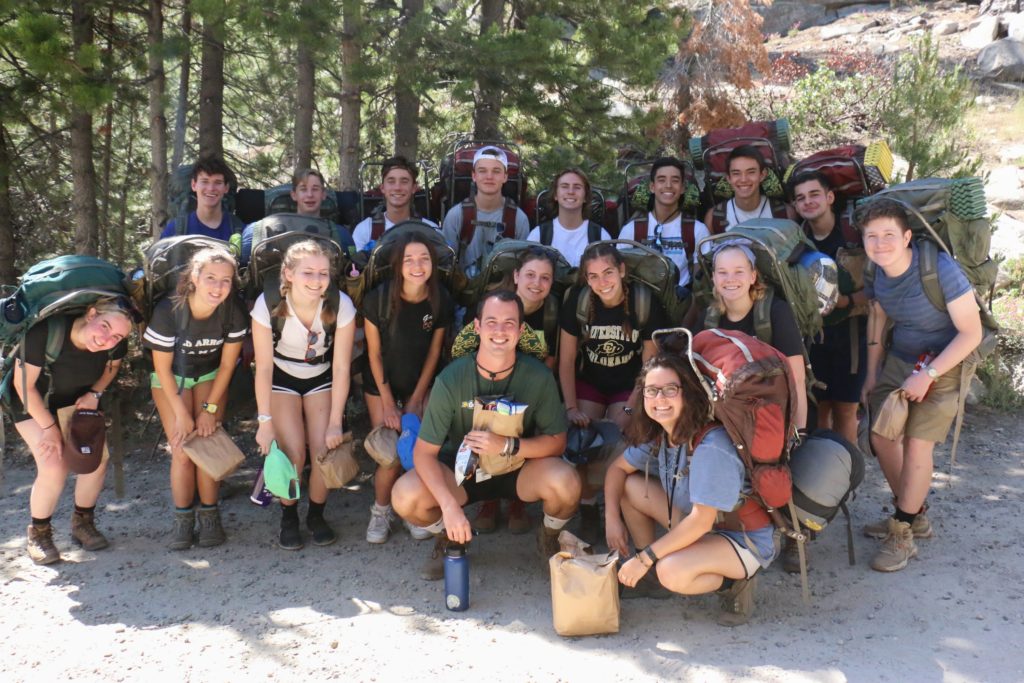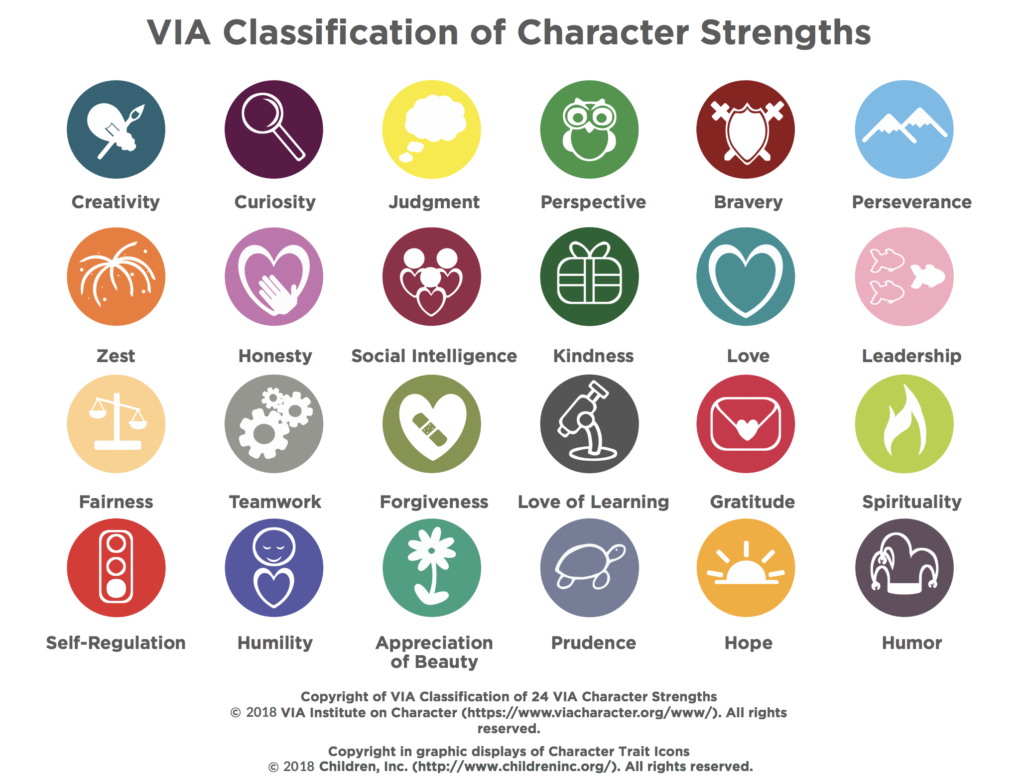 One of my highlights of last week was meeting with our Junior Counselors (17-year-olds heading into their senior year of high school) and talking about their strengths. After spending a morning sharing the strengths they saw in each other, reading about the strengths their parents see in them, and viewing their results of the VIA Survey they took online before coming to camp, I had each of them prepare a short talk for the group talking about and “owning” one of their strengths. Their short talk had three parts:
One of my highlights of last week was meeting with our Junior Counselors (17-year-olds heading into their senior year of high school) and talking about their strengths. After spending a morning sharing the strengths they saw in each other, reading about the strengths their parents see in them, and viewing their results of the VIA Survey they took online before coming to camp, I had each of them prepare a short talk for the group talking about and “owning” one of their strengths. Their short talk had three parts:
- Identify and define the strength.
- Share a story about something that has happened in their life where they used that strength.
- Talk about how they’ll use that strength to reach a goal they have for themself.

Junior Counselors
We are happier when we spend more time focusing and building upon our strengths than remediating our weaknesses. This is as true for children and teenagers as it is for adults.
Parents have traditionally spent more time and energy focusing on our children’s weaknesses than on their strengths. We fixate on the lowest grades as opposed to the areas of highest interest and achievement. Extra tutoring and coaching are just two examples of areas where we send a clear message to children: “You are not good enough and need to be fixed.” We hire tutors and make them spend more time on the subject they enjoy the least.
As adults, we know that spending more time doing things we don’t enjoy does not lead to a happier life. And yet, how do we make our kids spend their time?
Psychologist Lea Waters puts it this way: “Whether we want to or not, we spend more time in fix-it mode with our kids. We spend more time correcting what is wrong — zeroing in on weak spots, overcoming their faults and what is lacking in them.”
Many children are getting the message that they are expected to excel in all areas and that weak spots make them unworthy. Common sense and our own life experience tell us that perfection in all areas is not a realistic nor achievable human goal, and yet our culture continues to send the opposite message to young people. And while there are some basic academic competencies children need to master, this hyper-focus on weaknesses can lead to negative outcomes, including feelings of worthlessness, apathy, depression, anxiety, and suicide, to name just a few.
Recent research has proven that much of the angst and stress our youth feel can be alleviated if we shift from a deficit model, where our focus is on what is wrong with the child, to a strength-based focus, where we focus instead on what is going well for the child (Peters, 2015; Zimmerman, 2013; Lerner & Geldhof, 2011).
The field of positive psychology has proven that our children will have the best chance at being happy and healthy adults if we guide them to focus on and use their strengths rather than trying to constantly fix areas of weakness. A strengths focus can build up children’s confidence and improve their outlook, which will most likely lead to improved outcomes in all areas, even weaker ones.
Here are a few ways we can focus on our kids’ strengths:
#1 Embrace Uniqueness
Talk about how each of us is unique, and we all have different strengths. Consider using a strengths or personality survey to identify each of your unique personalities and character traits.
#2 Don’t Compare
“Everybody is a genius. But if you judge a fish by its ability to climb a tree, it will live its whole life believing that it is stupid.”
—Albert Einstein
Refrain from comparing your kids to their siblings, to other kids, or to the version of other kids parents’ publish online.
#3 Talk Strengths
Build up your “strengths” vocabulary. You can download the VIA Classification of Character Traits (for youth) here.
“Strengths are the activities, relationships, and ways of learning that energize people.” —Jenifer Fox
As camp leaders, parents, teachers, or anyone else who works with kids and young adults, we can positively impact young people by learning to talk about ourselves and the kids we work with using the language of strengths. You do not have to become a trained expert in strengths assessment to use the language of strengths, but becoming aware of some of the key questions to ask will better equip you to help campers and staff identify their natural talents and gifts. Here are some questions to consider in determining a child’s strengths:
- What causes the child to express excitement? What topics of discussion engage him or her?
- What are the things that keep his or her attention the longest?
- Are there sounds or words he or she reacts to more than others?
- Is he or she generous? How does he or she show this?
- Does he or she show sympathy? Is he or she caring or funny?
#4 Point Out Strengths
When talking to your kids, think about a concept we use at camp called catching them doing something right. Instead of going straight to what you naturally see going wrong, focus on something they are doing right. Think about using a phrase starting with “I noticed….”
For example:
“I noticed you stopped and picked up the book your friend dropped. That was kind.”
“I noticed you kept working at that math problem for a long time, even though that was really hard for you. You showed determination.”
Or, compliment strengths using whatever language you choose! For example,
“You really made me laugh the way you told that story. I love your humor.”
“The encouraging note you left me on my pillow made my day. I appreciate your caring.”
When kids hear one of their character strengths is noticed and acknowledged by others, it makes them want to practice that trait more. It also builds up their confidence in themselves, which in turn will help them do better in all areas of life.
If we want to raise kids who become flourishing adults who find their unique path and contribute positively to the world, we need to help them identify and focus on their strengths.
This post is part of my One Simple Thing series. Each month, I’m sharing one simple way to increase your family’s happiness and connection. To be sure not to miss one of my tips, subscribe to my weekly email newsletter (sign up at the top of your screen)!
Resources/Related
Creating a Strengths-Based Camp, American Camp Association
Ep. 28: Focusing on our Kids’ Strengths
Focusing on Our Kids’ Strengths
Your Child’s Strengths: A Guide for Parents and Teachers by Jenifer Fox
Encouraging Strengths in Our Children: Jenifer Fox at TEDxTraverseCity
Strengths Switch: Strengths Based Parenting (Lea Waters, You Tube)
Strengths Based Parenting: Developing Your Child’s Innate Talents, Mary Reckmeyer, PhD
“Finding Students’ Hidden Strengths and Passions,” Maurice Elias

